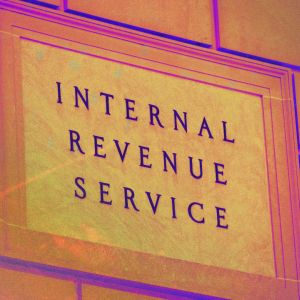The IRS’s new rules classify DeFi platforms as brokers and mandate KYC and transaction reporting. DeFi services must choose between compliance, blocking U.S. users, or fully decentralizing. Each path carries risks and could significantly impact the future of decentralized finance. The IRS recently introduced reporting regulations that could the decentralized finance (DeFi) space. The regulations classify DeFi platforms and front-ends as brokers that will have to report intricate transactions and user information. The IRS final reporting rule, issued on December 27, 2024, expands the definition of “a broker” to include DeFi front-end platforms. It goes without saying that platforms such as Uniswap, which allows users to buy and sell digital assets through smart contracts, must eventually conform to KYC regulations and report user transaction data. These regulations pose very serious challenges to DeFi applications because most of them were founded on the principles of decentralization and privacy. Such regulation might stifle innovation and send platforms offshore, opposing what is essentially the crypto world’s basic ethos. With the deadlines approaching, the industry needs to decide how to adapt to these rules. Alex Thorn, the head of research at Galaxy Digital, has mentioned three possible paths in case the IRS rules are not reversed. Option 1: Compliance with the IRS’ rules The first option for the DeFi platforms is to comply with the new IRS rules. This will involve introducing KYC protocols, gathering user data, and then reporting transactions to the IRS. Yet, compliance is easier said than done. Many DeFi platforms operate through decentralized autonomous organizations (DAOs) or with non-upgradeable smart contracts, it’s rather hard to implement such changes. Compliance would also exclude users who value privacy and decentralization. Furthermore, the added administrative and technical overhead might make operations infeasible for smaller projects. However, for platforms that are willing to make these concessions, compliance provides a means of continuing to serve U.S. users and operating within the law. Option 2: Block U.S. users The other alternative is to entirely shut out U.S. users. Some DeFi applications have resorted to shutting down their websites or even deactivating features for users in the United States. This measure has helped platforms dodge regulations, but it also limits exposure to potential users. The global DeFi ecosystem would be further fragmented as platforms focus on areas where regulations are relatively easier to follow. The risk, though is that many in the United States crypto community will be excluded, which will slow wider adoption of DeFi. Option 3: Deep decentralization Thorne’s third option is for protocols to give up revenue generation and smart contract upgrades in exchange for full decentralization. In this model, the DeFi applications would lose any front-end interfaces or the influence of centralized teams. All operations would be done with immutable smart contracts and community-oriented governance. By becoming “highly decentralized,” platforms would likely be able to avoid being a “broker” as they could not collect information about their users or command the transaction. This approach follows the tenets of decentralization, but it also poses its own problems. Innovation might be constrained, friendliness for users may decrease, and the ability to monetize would be hampered. It estimates the new rules will hit an additional 875 DeFi operators, as well as approximately 2.6 million U.S.-based taxpayers. Industry critics have argued against such rules as “abysmally heavy.” They have even launched actions about illegal imposition. Critics fear that the IRS may shift DeFi innovation outside the United States and ultimately hurt the U.S. crypto industry. The Blockchain Association branded the rules a “privacy violation” and voiced the concern that it may deter developers from advancing the DeFi space. The public can comment on this proposed rule until October 30, 2025. The agency has also tentatively scheduled a public hearing for November 7, 2025. These compliance deadlines should not pass without the industry preparing DeFi platforms for the change in operations. Three options, as represented by Thorn, are the difficult choices facing the DeFi industry. Compliance may bring legitimacy at a high cost to decentralization and privacy. Blocking U.S. users would shield platforms from regulatory risks but could limit their growth potential. Deep decentralization could keep the principles of DeFi intact, but usability and innovation would have to be sacrificed. The new IRS rules have put DeFi at a crossroads. Companies must choose to comply, block U.S. users, or go fully decentralized. A Step-By-Step System To Launching Your Web3 Career and Landing High-Paying Crypto Jobs in 90 Days.



















